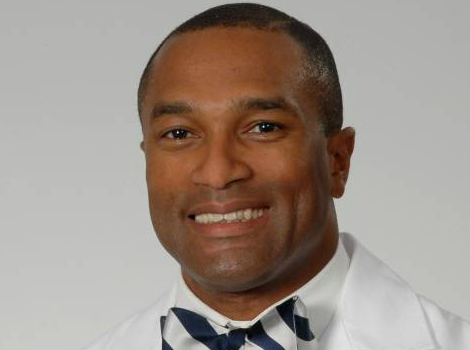Most Common Questions I Hear as a Mesothelioma Specialist
Treatment & DoctorsWritten by Dr. Brian Pettiford | Edited By Walter Pacheco

I spent the majority of my career practicing and training in the Northeast, primarily in Pennsylvania.
Since joining the staff at Ochsner Cancer Institute in New Orleans, I have seen a tremendous number of patients with malignant pleural mesothelioma at varying stages and ages.
These patients also have differences in their asbestos exposure profile. Most of them experienced occupational exposure during military service in the U.S. Navy or while working in a shipyard in the Gulf South region. Unfortunately, some family members were exposed from washing the clothes of loved one who worked in a high-risk occupation.
We’re talking about a rare disease with 2,500 to 3,000 cases diagnosed each year in the U.S., as opposed to 215,000 new cases of lung cancer. Because of that and the magnitude of the treatment regimen, there aren’t a lot of cancer centers specializing in mesothelioma.
Patients have to look near and far to find one. At a center such as Ochsner, we can take a well-coordinated multidisciplinary approach between the surgeon, radiologist, medical oncologist and pulmonologist.
We also can better answer questions patients may have about their diagnosis.
Answering Questions About Life Expectancy
After we diagnose a patient with malignant pleural mesothelioma, the most common question I’m asked: “How long do I have?”
The outcome is extremely guarded. We look at life expectancy for mesothelioma cancer in terms of months — on the lower end of months if nothing is done — but I tell all of my patients that you have to take it one step at a time and one day at a time.
None of us are guaranteed to be around in the next 30 seconds. I tell them that, as far as I know, I don’t have cancer, but I’m not guaranteed to be breathing in the next two minutes. I can’t run my life based on that, and I encourage my patients to do the same.
We go over the statistics in terms of survival with and without treatment, and I tell them a lot of that is based on the spread of the disease.
I reassure them that by virtue of being at a cancer center with experience treating mesothelioma, we have the capability of determining the exact stage of the disease, best treatment regimen and potential outcome based on treatments we recommend.

Gain access to top mesothelioma doctors and get help scheduling appointments.
Connect NowMultimodal Approach to Treatment
The next most common questions: “How are you going to treat it? Can this be cured?”
For those patients who are eligible for surgery beyond diagnosis, I will tell them it will involve multiple modalities. It will involve surgery, chemotherapy and may or may not involve radiation therapy.
There are two common surgeries for treating malignant pleural mesothelioma — pleurectomy/decortication (P/D) and extrapleural pneumonectomy (EPP).
Each surgery is a pretty invasive procedure, but neither is considered curative.
The goal of both surgeries is to remove all visible disease. The assumption is there will be microscopic disease left behind, hence the need to give patients chemotherapy before and after surgery.
It’s usually at that point when it begins to sink in. Patients start realizing what they are up against.
Compartmentalize the Process
Receiving a diagnosis is the first step.
Although a mesothelioma diagnosis can be devastating, I try to explain to patients the importance of knowing what we’re facing.
You can’t treat what you don’t know.
I tell patients we have to compartmentalize the whole process. We can look at the big picture — the goal of remission — but we must take it one step at a time.
Once we have a diagnosis, it’s time to formulate a treatment plan. I tell patients they’re so special that we’re going to discuss their case at our weekly conference.
Many doctors will weigh in with input. There will never be one person running the show or calling all the shots. This way, we can give the patient what we feel is the best care, what meets or exceeds the standard of care.
I make sure to communicate with the patient’s other health care providers to ensure we’re all on one accord with respect to the treatment plan.
That alone can provide some degree of relief to patients once they arrive in our office.






